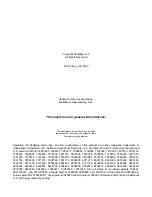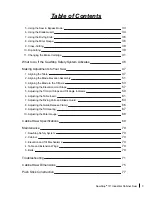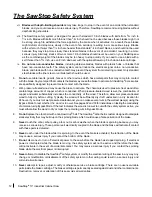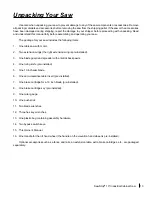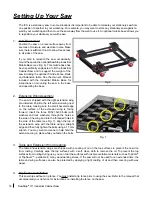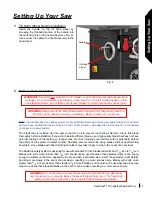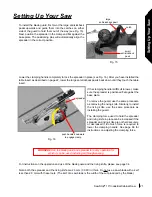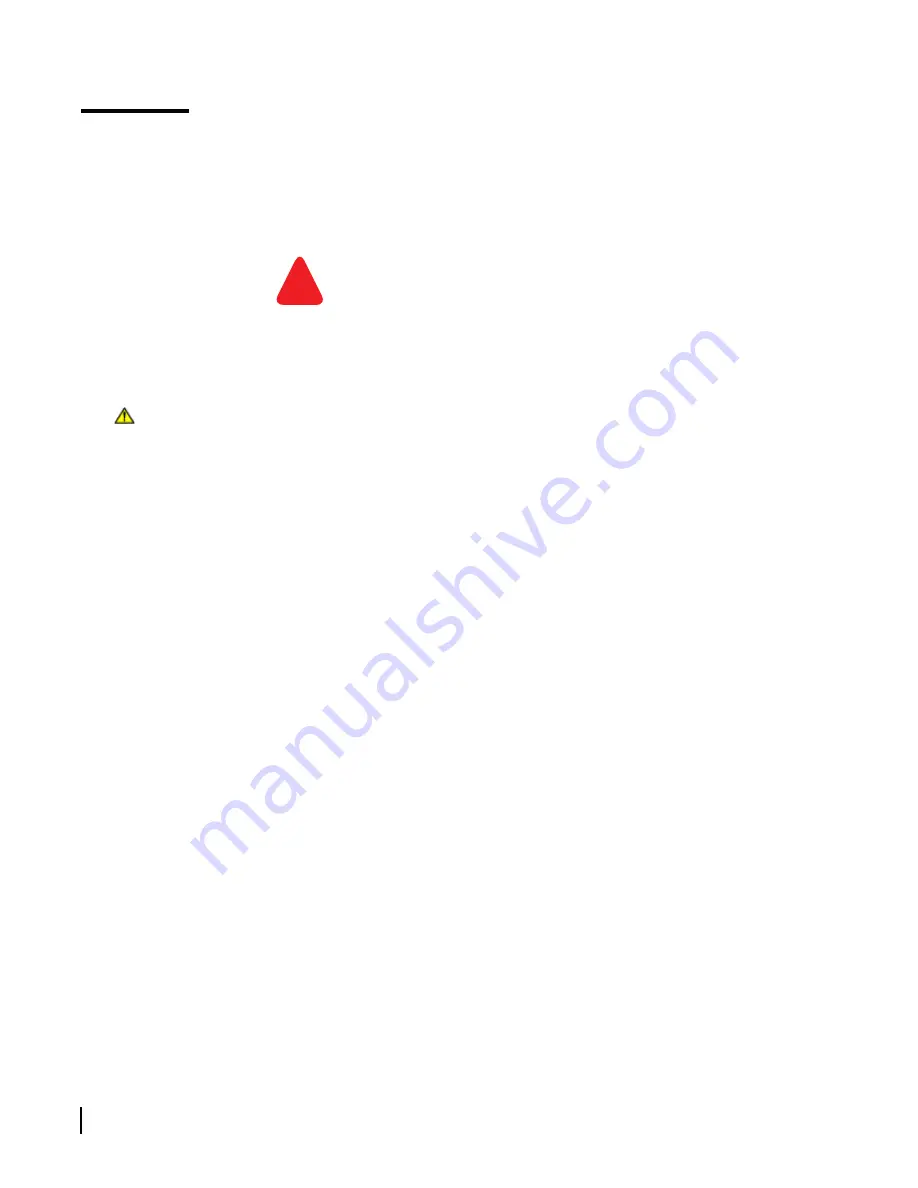
6 SawStop
®
10” Industrial Cabinet Saw
Safety
A table saw is a dangerous tool and there are hazards inherent with using this saw. Some of these hazards
are discussed below. Use common sense when operating the saw and use the saw only as instructed.
You are
responsible for your own safety!
WARNINGS
1. Read and understand the instruction manual and all safety warnings before operating this saw. Failure to follow
instructions or heed warnings may result in electric shock, fire, serious personal injury or property damage.
Save these instructions and refer to them whenever necessary.
2.
WARNING:
This product can expose you to chemicals including wood dust, which is known to the State
of California to cause cancer. This exposure can come from drilling, sawing, sanding or machining wood
products. For more information go to www.P65Warnings.ca.gov/wood. In addition, some types of dust created
by sawing, sanding, grinding, drilling, and other construction activities also contain chemicals known to cause
cancer, birth defects or other reproductive harm. Some examples of these chemicals are lead from lead-based
paints, crystalline silica from bricks, cement, and other masonry products, and arsenic and chromium from
chemically treated lumber. In addition, wood dust has been listed as a known human carcinogen by the U.S.
government. The risk from exposure to these chemicals and to dust varies depending on how often you do this
type of work. To reduce your exposure, work in a well ventilated area and work with approved safety equipment
including dust masks or respirators designed to filter out such dust and chemicals.
3. THIS SAW MUST BE CONNECTED TO A GROUNDED WIRING SYSTEM or to a system having an equipment-
grounding conductor. In the event of a malfunction or breakdown, grounding provides a path of least resistance
for electric current to reduce the risk of electric shock. Improper connection of the equipment-grounding
conductor can result in a risk of electric shock and/or malfunction. Check with a qualified electrician or service
personnel if the grounding instructions are not completely understood or if in doubt as to whether the tool is
properly grounded.
4. Pay particular attention to instructions on reducing the risk of kickback. Kickback occurs when a work piece
contacts the downstream edge of the blade as it is being cut and is propelled back towards the user at a high
velocity.
5. Keep guards in place and in working order. Use a blade guard and spreader for every operation for which it can
be used, including all through-sawing. Use a push-stick when required.
6. Remove adjusting keys and wrenches from the saw before turning it on.
7. Keep the top of the saw clean and free from clutter. Cluttered areas invite accidents.
8. Do not use the saw in dangerous environments. For example, do not use the saw in damp or wet locations or
expose it to rain; and keep the work area well lighted.
9. KEEP CHILDREN AWAY from the saw. All visitors should be kept at a safe distance from the work area. Make
the workshop kid-proof with padlocks, master switches, or by removing starter keys.
10. Do not try to force the saw to do something it was not designed to do. For example, do not try to cut wood faster
than the motor can handle, and use the right blade for the job.
!


